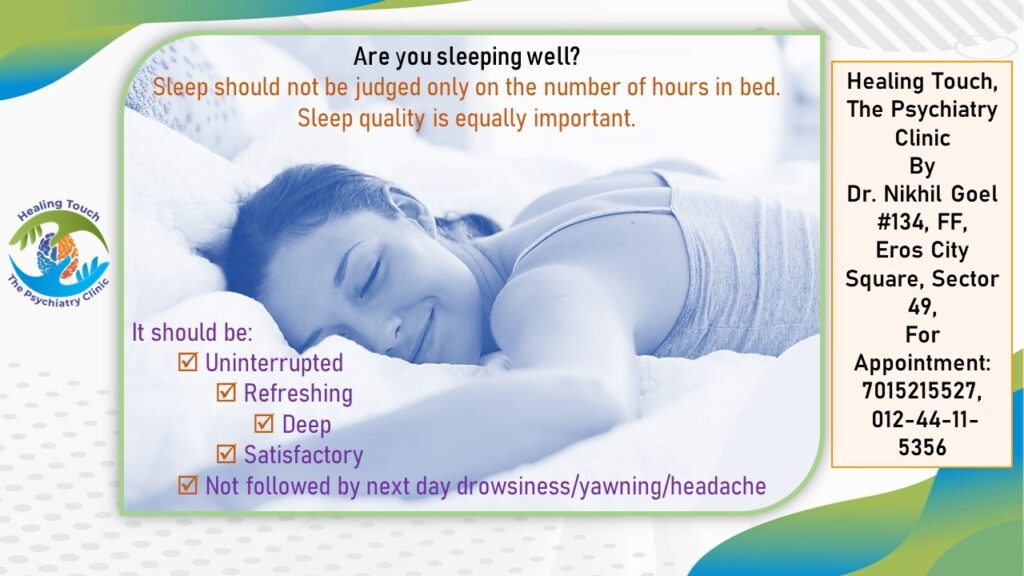Sleep Related Problems
Sleep Related Problems

Sleep-related problems refer to difficulties or disruptions in the quantity or quality of sleep that can significantly impact an individual’s overall well-being and functioning. These problems can include difficulties falling asleep, staying asleep, experiencing restful sleep, or having abnormal sleep behaviours. Here are some common sleep-related problems:
- Insomnia: Insomnia involves difficulties falling asleep, staying asleep, or experiencing non-restorative sleep despite having the opportunity for adequate sleep. Insomnia can be caused by various factors, including stress, anxiety, depression, medical conditions, medication side effects, or poor sleep habits.
- Sleep Apnea: Sleep apnea is a condition characterized by interrupted breathing during sleep, resulting in brief awakenings and poor quality of sleep. It can lead to excessive daytime sleepiness, snoring, and fatigue. Obstructive sleep apnea occurs when the airway becomes partially or completely blocked during sleep.
- Restless Legs Syndrome (RLS): RLS is a neurological disorder characterized by an uncomfortable sensation in the legs, often accompanied by an irresistible urge to move them. RLS symptoms typically worsen at night or during periods of inactivity, leading to difficulties falling or staying asleep.
- Narcolepsy: Narcolepsy is a neurological disorder that affects the brain’s control of sleep-wake cycles. It causes excessive daytime sleepiness, sudden and uncontrollable episodes of falling asleep during the day (called “sleep attacks”), and sometimes includes other symptoms such as cataplexy (sudden loss of muscle control).
- Parasomnias: Parasomnias are abnormal behaviors that occur during sleep. Examples include sleepwalking, sleep talking, night terrors, and REM sleep behavior disorder (acting out dreams during sleep). Parasomnias can disrupt sleep and affect overall sleep quality.
- Circadian Rhythm Disorders: Circadian rhythm disorders are disruptions in the sleep-wake cycle, often due to irregular sleep schedules, shift work, or traveling across time zones. Conditions like jet lag, delayed sleep-wake phase disorder, and advanced sleep-wake phase disorder fall into this category.
Treatment for sleep-related problems varies depending on the specific condition and its underlying causes. Approaches may include lifestyle modifications (such as maintaining a regular sleep schedule, creating a sleep-friendly environment, and practicing good sleep hygiene), cognitive-behavioural therapy for insomnia (CBT-I), medications, and in some cases, the use of medical devices like continuous positive airway pressure (CPAP) machines for sleep apnea.
If you are experiencing persistent sleep problems or suspect a sleep disorder, it is advisable to consult with a healthcare professional, such as a sleep specialist or a physician specializing in sleep medicine. They can provide an accurate diagnosis and recommend appropriate treatment options to improve your sleep quality and overall well-being.

